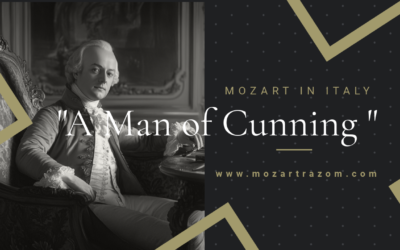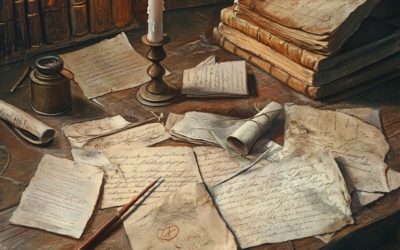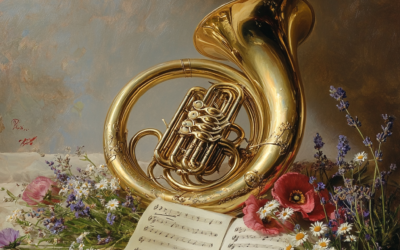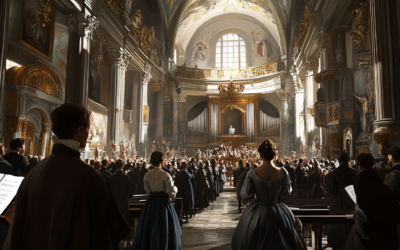Wolfgang Amadé Mozart
The Visit to Verona: A Tenuous Introduction to Italian Nobility
In Verona, young Wolfgang Mozart impressed the local nobility, but the reality behind the scenes reveals a carefully managed public image, where strategic networking and curated praise played key roles in shaping his growing reputation.
Mozart in Italy: The Untold Story
Was Mozart truly a solitary genius, or was he merely the instrument of his father’s ambition? “Mozart in Italy” challenges the conventional narrative, revealing a complex dynamic between father and son that shaped the course of music history. Prepare to question everything you thought you knew.
“Leopold Mozart, ever the strategist, ensured that Wolfgang's performances in Verona were not only memorable but meticulously documented, securing the praise necessary to bolster his son's reputation across Italy”
Mozart in Italy
The Mozart family’s journey to Italy in late 1769 was marked by careful planning and strategic networking, with the ultimate goal of showcasing Wolfgang’s talents to the highest circles of European society. Their stop in Verona, beginning on December 28 or 29, 1769, was no exception. Here, they navigated the complexities of social introductions and sought to establish their presence in the Italian cultural scene.
Strategic Introductions and Initial Impressions
Before leaving Rovereto, the Mozarts secured crucial letters of recommendation from local nobility, including Baron Giovanni Giulio Pizzini and Count Domenico Antonio Lodron. These letters were essential for gaining access to the influential circles of Verona and beyond. Lodron, recognising the importance of these introductions, presented Leopold as the “Maestro di cappella” to the Archbishop-Prince of Salzburg and Wolfgang as a prodigious talent “approximately 13 years old,” despite the fact that Wolfgang was nearing his 14th birthday.
Upon arrival in Verona, the Mozarts were immediately immersed in the city’s rich cultural atmosphere. Contemporary travel guides describe Verona as an ancient city with deep historical roots. It was also a fortified city, boasting impressive military architecture alongside its cultural landmarks. However, despite its grandeur, Verona was not immune to the typical challenges of securing performance opportunities for young Wolfgang.
The Long-Awaited Academy
Leopold’s letters home reveal that it took a full week for the Veronese nobility to organize a suitable event for Wolfgang to perform. This “academy” or concert, held on January 5, 1770, was not a solo recital but a gathering of musicians, poets, and local elites. These academies were more social than artistic, characterized by a mix of conversation, music, and the display of wealth and fashion by the attending nobility. The Veronese society, still untouched by the more moderate English tastes that would later influence European fashion, was known for its lavish and colourful gatherings.
The event itself was a typical 18th-century social affair, with various musicians and performers taking turns to entertain the assembled guests. Wolfgang’s role in the evening was significant but not singularly dominant. He performed a symphony of his own composition and played a harpsichord concerto at sight, impressing the audience with his skill. However, it was clear from the accounts that the evening’s success was shared among several performers, with Wolfgang’s contributions being part of a broader program.
The Reality Behind the Praise
Leopold, always mindful of his son’s public image, made sure to send back positive reports of their time in Verona, emphasising Wolfgang’s success. He noted that poets vied to compose verses in Wolfgang’s honour and that even the city’s officials and clergy were taken aback by his talent. Yet, it is essential to recognise that these reports, as was common at the time, were carefully curated to enhance Wolfgang’s reputation. The press coverage of the event, likely influenced by Leopold, echoed the hyperbolic praise often found in periodicals of the era, where glowing reviews were sometimes purchased rather than earned.
While the academy in Verona did add to Wolfgang’s growing reputation, the reality was that his performances, though impressive, were part of a larger cultural tapestry. The praise he received, while genuine in part, was also the result of Leopold’s relentless efforts to shape the narrative surrounding his son.
You May Also Like
A Revolutionary Encounter at Cremona Musica
Sharing insights on Mozart and the Neapolitan school at Cremona Musica, the premier global stage for music and culture.
#1 A Man of Cunning
In the end, Leopold Mozart’s life was a testament to survival in a world where his talents were often overshadowed by those of his more gifted contemporaries and his own son. While his “Violinschule” remains a notable contribution to music pedagogy, it is clear that Leopold’s legacy is as much about his ability to navigate the challenges of his time as it is about his musical achievements. His story is one of ambition, adaptation, and the lengths to which one man would go to secure his place in history, even if that place was built on borrowed foundations.
@MozartrazoM
Mozart’s Letters: A Legacy of Disappearances, Edits, and Forgeries
Mozart’s letters reveal missing originals, questionable authorship, and forgeries, adding complexity to his legacy.
The Curious Case of Mozart’s “Lullaby”
Though long credited to Mozart, the lullaby “Schlafe mein Prinzchen, schlaf ein” hides a murky history. Initially published by Nissen, Constanze’s second husband, it has endured as one of Mozart’s supposed works—despite a trail of doubts. In 1798, Constanze herself noted sending “another piece of Mozart’s in place of the lullaby,” raising questions about its origins. By the 20th century, researchers revealed it as the work of lesser-known composers, yet it remains deceptively tied to Mozart, its myth surviving through mere footnotes.
The Contradictions Behind Mozart’s Horn Concerto K.412
The authenticity of Mozart’s Horn Concerto K.412 remains hotly debated, as the work bears numerous contradictions in its manuscript history. The first movement may be original, but what about the rest? The inclusion of Franz Xaver Süssmayr and later editorial meddling raises serious questions about what we are really listening to when we hear this ‘Mozart’ concerto.
The Questionable Attribution of Mozart’s Offertorium K.34
Attributing Offertorium K.34 to Mozart is not just misleading, it reflects the careless methods used by 19th-century scholars to inflate his legacy. Without an autograph or solid evidence, this work should not be considered part of his output.”







